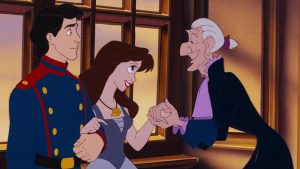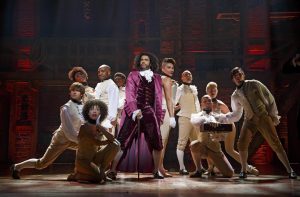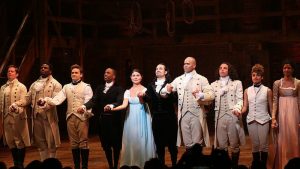After two decades in the business of making feature-length animated films that continually break new ground for the medium, Pixar has finally…tried to break new ground for representation, with Soul being the studio’s first Black-led film. And, in a pattern established by Disney Animation with their first Black-led Princess movie, The Princess And The Frog, Soul is at its very best whenever it’s illuminating the beauty and complexity of Black culture in America – and at its worst when it’s forcing an uncomfortable bodyswap (or, well, soulswap in this case) that in this case involves an awesome Black character being transplanted into a green blob/therapy cat for around 90% of the movie. That’s not to say that 90% of the movie is bad (it’s actually quite good, for several reasons), but it is deeply frustrating that we keep having to have this extremely specific conversation about the importance of allowing animated Black protagonists to remain in their own bodies.

Soul dives headfirst into a conversation about the meaning of life, by following a middle-school band teacher named Joe Gardner (voiced by Jamie Foxx) as he…well, dives headfirst into an open manhole and is left in a coma, while his untethered soul desperately tries to find its way back to him. An accident leads Joe’s soul to The Great Before, a dreamy, pastel-colored landscape where young souls first have their personalities and various character quirks picked out for them before being sent off to Earth. Here, another accident leads to him being selected to mentor a rambunctious soul named 22 (voiced by Tina Fey, a casting error if ever there was one), who doesn’t want to leave The Great Before or live on Earth. Naturally, Pixar cranks up the tear-jerking dial to an 11 as Joe leads 22 on a fast-paced tour of New York City, giving them both a chance to savor the true joys of living.
What I truly love about Soul more than anything else is its unwavering focus on simple things: things we too often take for granted, but which keep us rooted in reality; things as small and seemingly insignificant as a pizza crust, a spool of thread, or even a helicopter seed. As a Tolkien fan, that message resonated deeply with me, and brought to mind Gandalf’s iconic quote from The Hobbit: An Unexpected Journey (I know, I know, a movie quote: but a good one) – “I found it is the small everyday deeds of ordinary folk that keep the darkness at bay. Small acts of kindness and love.” That’s what Soul is really all about: small things and kind deeds that get us through one day, and then another, reminding us of how much wonder and beauty this world still has to offer us at every turn. A sequence in the third act illustrates this beautifully, allowing Trent Reznor and Atticus Ross’ haunting New Age score to narrate a vibrant montage of small-scale city life that pulls back to become a sprawling picture of the cosmos itself – and our tiny place in it.
Music is (pun most certainly intended) instrumental to Soul‘s success, and there will be h-e-double-hockeysticks to pay if Reznor and Ross aren’t rewarded at the Oscars for their work here. Their delicate New Age compositions harmonize beautifully with Jon Batiste’s jazz tunes, making the entire film as irresistible to the ears as it is to the eyes. Music, specifically soul music, is at the heart of everything Joe Gardner does throughout the story: and the film makes that clear, lavishing plenty of time on the moodily atmospheric nightclub where Gardner performs alongside in-universe jazz legend Dorothea Williams (Angela Bassett), becoming so lost in the power of his music that he’s briefly transported to the astral plane, a mystical soundscape of shifting lights.
The animation is stunning, with all the levels of hyper-realistic detail you’d expect from a live-action film set – except in The Great Before, which has a quirky, abstract visual aesthetic, and The Great Beyond, a dark area comprised entirely of deconstructed geometric platforms, like the blank space outside the boundaries of a video game. But although I’ve heard complaints that animation’s goal shouldn’t be to mimic real life but to exaggerate it, I still preferred the sections of Soul that take place in New York City to those that center the spiritual realm. Firstly, because the entire film is clearly such a passionate and genuine love letter to every aspect of city life. And secondly, because of the character designs, which are among the most diverse I’ve seen in any animated film, ever. No copy-and-paste facial features here: Soul‘s New York is accurately populated by people of every race, gender, body type, height, and weight, each with their own individual character quirks. If the extras in your movie all look detailed enough to probably carry their own story, you know you’ve done something right (in case it wasn’t clear, I am in fact demanding that Pixar commission a series of shorts focusing on various extras from this film).

Of our two leads, Joe is by far the more interesting: tall, lanky, middle-aged and bespectacled, he isn’t anything like the usual Pixar protagonist, or even the usual Pixar “hot dad” character (yes, that’s a real thing). He’s also sometimes Black, which makes him pretty unique for Pixar simply by default. I say “sometimes” because, well, he’s not Black for most of the film. And the worst part isn’t even that he gets turned into a wispy, featureless, pale green orb ten minutes in. The worst part is that the film gets a chance to remedy its mistake soon afterwards – and instead doubles down on its original bad choice, placing Joe into the body of a therapy cat while inserting 22 into Joe’s body. You can claim this is much ado about nothing, because 22 is just a disembodied voice in a green orb: but Pixar made the choice to have them voiced by a white actress, and even commented on it in the script, with Joe asking 22 why they prefer the voice of a “middle-aged white lady” when they can adopt any voice they want. This is all played for laughs, but it’s not funny. Just like it wasn’t funny when Tina Fey, 22’s voice actress, wrote blackface performances into four episodes of her series 30 Rock – something for which she only finally apologized earlier this year. Pixar giving this opportunity to her is a clear sign that the studio needs to do better when casting: because there is nothing in the script that requires 22 to have a white woman’s voice…unless it is the belief that the soulswap will somehow be made funnier because of it.
And unfortunately, all this comes about at the expense of Joe, who, as previously mentioned, gets stuck in the body of a cat. If you’re not familiar with the strange phenomenon of Black animated characters being transformed into animals, this probably seems like just another joke I’m not getting. But it’s an unfunny joke that’s been driven into the ground at this point: one that relies on the notion that audiences won’t relate to a Black protagonist, but will happily laugh along if that Black protagonist is usurped from their body and placed in an animal – or really anything else but themselves. Soul, by keeping Joe’s body hanging around, seems to think it’s doing the right thing: but it’s not Joe we’re seeing onscreen – it’s Tina Fey’s white-lady voice, using Joe’s body as a mouthpiece for their own agendas, at one point even hijacking and running off with it (apparently, Joe’s body didn’t suffer a single bruise, cut, or broken limb during his coma-inducing fall) like a shoplifted costume. There are other instances worth noting, but I will leave it up to individual Black critics and audience members to decide whether and where Soul crosses the line exactly. I am nonetheless certain that many – if not all – of these issues could have been easily avoided by casting a Black voice-actress in the part.
The other major issue with the film, less severe than the ones I’ve already mentioned, is a problem with pacing: as the first two acts meander all over the place. There’s no clear point at which the action really starts, either – eventually, you just have to accept that the story is moving along ever more swiftly, and there’s not much time to slow down or take a breather before you’re swept up in it. I feel that all of this may have been intentional, to mirror the hurried pace of real life and the need to savor the few respites we get from daily hustle-and-bustle, but while that sounds like an intriguing concept, it makes for a strange viewing experience. Still could win over some Academy voters, however, if it was a conscious choice.

In the entire history of the Academy Awards, only two animated feature-length films have ever been nominated for Best Picture – one being from Disney (Beauty & The Beast), and the other from Pixar (Toy Story 3, somehow). Soul, if it hopes to be the third, may therefore benefit from the COVID-19 delay that forced it to debut free of charge on Disney+ this Christmas: a date that puts it firmly in the middle of awards season. I personally doubt the film will score a Best Picture nomination, but it’s certainly the early frontrunner for Best Animated Picture, to nobody’s surprise. Onward never stood a chance.
And speaking of Onward, the lighthearted fantasy adventure remains my favorite Pixar film of the year (and my second-favorite Pixar film of all time), believe it or not. But fear not: Soul‘s decidedly Tolkienesque messages and simple delights will ensure it a safe place in my affections, though perhaps never a spot at the top of my Pixar tier-list.
Movie Rating: 8/10




